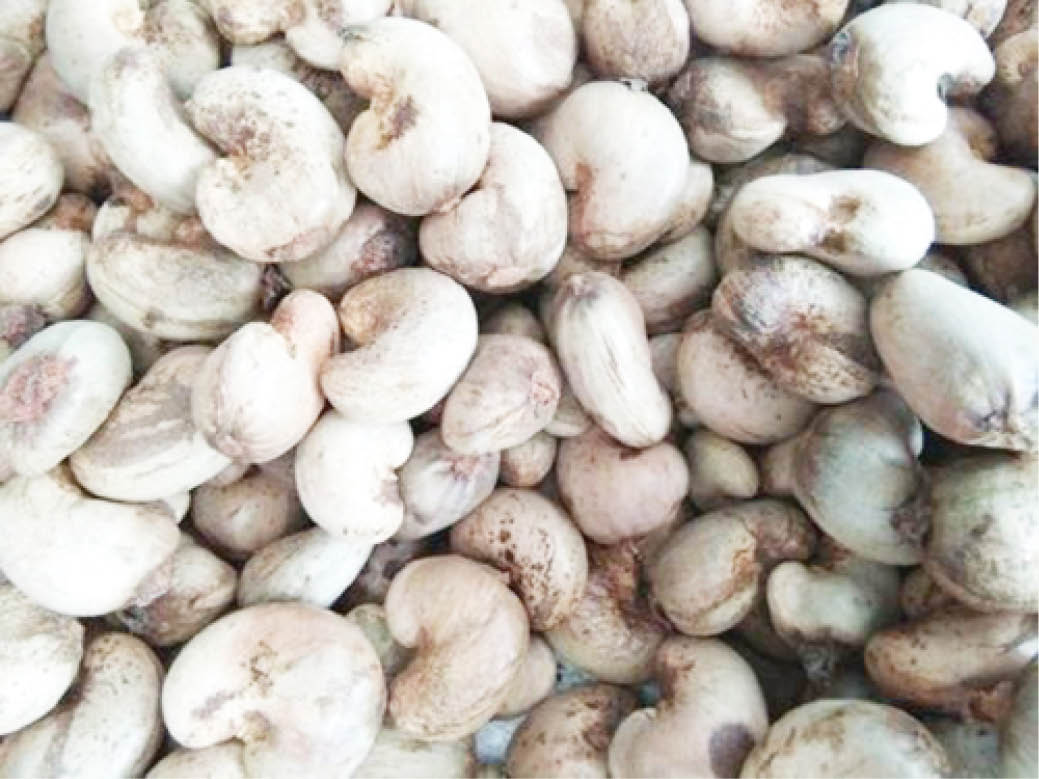Cashew farmers in Kwara State have lamented what they described as a huge loss in the agricultural process and other value chains of production.
Although Kwara State is regarded to be among first three states in cashew production in Nigeria, many stakeholders, farmers and others in the value chain, have long lamented that the state was yet to realise its full potentials from its vast cashew plantations and the multi-billion dollar global market value.
FG confirms outbreaks of swarm birds, locusts
Dangote to harvest N2.1tr on fertiliser export
The plight of the state, many believe, is underscored by the fact that despite its huge cashew plantation, there is no cashew juice factory in the state and that Kwara is only getting a fraction of what it could have gotten from the multi-billion dollar global cashew business.
Speaking on the issue, the chairman, Cashew Farmers Association, Kwara State chapter, Alabi Babatunde Dauda, told Daily Trust on Sunday that the first issue is lack of enough government support as done in other states, adding that the state is losing over N2billion yearly from the cashew business.
According to him, N1bn investment in cashew can give Kwara a N3bn yearly turnover. So we are losing more than that amount yearly. Statistics, according to our calculation, is about 50,000 tonnes per year, and at N1,000 per ton, we can only imagine the huge money the state can make from such investment.
He said many people were desirous to extend their cashew farms but lack of government’s support had been a great hindrance.
“We have had difficulty in getting support for anything agricultural trees. Cashew production with all its value chains enhances and creates jobs for many people, including okada riders, dryers, pickers and other who seek daily money from the trade in Kwara. For instance, I am a produce buyer and have over 30 people in my payroll during the process of cashew production. But after that, I lay them off. So the more the production of the cashew, the more the effect will trickle down, and it will improve the spending power of the people.
“We have made lots of steps to see the governor but have only met his aides and commissioner.
“With the required funds you can expand your cashew farms. We the suppliers are pleading with farmers to engage in semi drying and desist from packing the nuts in polythene backs to enhance the quality of the product.
“With proper sensitisation through the government and our efforts, the quality of cashew will be enhanced. The farmers need orientation.
On how the companies have impacted the system, the chairman said “their impact have not been really felt because they are supposed do more for farmers and not just to make profit,” he said.
He advised the “government and other stakeholders to understand that cashew is Kwara’s cocoa and a big player in the international market with huge export potentials in the world.
“Proper regulation will also increase government’s revenue from what is being generated now, which is a far cry compared to what other states are getting from it. The focus from our government is not enough at all,” he added.
Another cashew farmer and immediate past chairman of the association in Kwara, Jamiu Abdullateef Ogele, said that despite the advantage of Kwara in the cashew business, it lacked proper data base of cashew producers.
“In Kwara, we lack access to facilities like soft loans to enhance the business. Now that the rain is on, there is the need for cashew farms to be cleared, but how is that possible for someone that has 3 to 5 hectares of cashew with cutlass. In other states like Oyo and Osun, the government liaises with the banks for soft loans to assist them.
“The farmers also lack orientation for proper coordination and farming. Government’s action is not with the knowledge of the association, and such steps cannot produce the desired result. We have tried to redress that but to no avail,” he said.
He said the recent move for the establishment of nursery cashew was good, but it was done outside the association.
“We are the farmers and know the seeds that will yield very well or not. We have licensing buying agencies (LBAs) in Kwara State, and before you can commence buying, there is a certain percentage you have to pay to the Ministry of Agriculture
“We produce from 3,000 to 5,000 metric tonnes, and the operating companies with us have their own targets from Kwara market. At N1,000 per ton, imagine what we can get. Loaded vehicles going out of Kwara State also have to pay; this is excluding other payments,” he said.

 Join Daily Trust WhatsApp Community For Quick Access To News and Happenings Around You.
Join Daily Trust WhatsApp Community For Quick Access To News and Happenings Around You.


